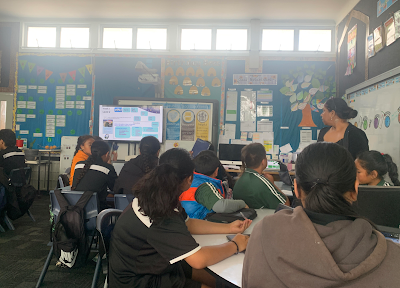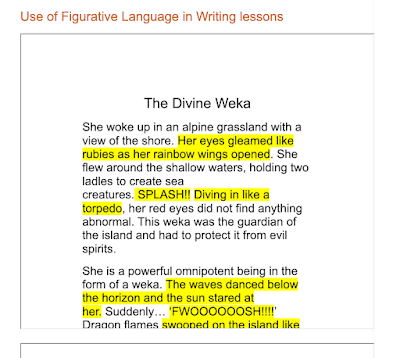Share three pieces of academic or professional reading and explain how they and other sources helped you form hypotheses about aspects of teaching that might contribute to current patterns of learning.
#1: Reciprocal Reading Intervention
Hunch: If I encourage my students to do more active reading such as making predictions, asking questions and making connections then this will lead to improved comprehension.
Reciprocal Reading is one of the strategies I use in Guided Reading. Why? Because I like how the strategy allows the students to become teachers in their groups. I like how RR has roles that students can act upon, such as; big boss, clarifier, summariser, questioner and predictor. Students take turns leading a role throughout the course of a term. RR is also a good strategy if you're wanting to teach 'Extended Discussions'. The roles come with prompt cards that have sentence starters. They can use the sentence starters to prompt good quality discussions in the groups.
RR encourages students to think about what they are reading and their thought process. It allows students to collaborate with each other to gain a better understanding of the text. RR teaches students to be actively involved in monitoring their comprehension and to ask questions during reading.
#2: Extended Discussion
Hunch: If I provide opportunities for an extended discussion of text meaning and interpretation it will help my students gain more confidence and improve their thinking skills.
Providing students with opportunities to participate in effective discussions regarding the meaning or significance of a text is a way to improve reading comprehension. Effective discussions include constructing comprehension and investigating outcomes both through cognition, relating what one knows, and listening to what others have to say.
Using RR in my GR helps foster opportunities for extended discussions. Students who are often quiet and reserved in the lessons now have a role they're expected to facilitate in the group. I have never had to force a learner take up on a role or have I had a learner decline it. My learners enjoy the connection and conversations that take place when we have run with the RR strategy.
#3: Guided Reading
Hunch: If I discuss the vocabulary related to the text prior to my Guided reading session, then they will find it much easier to understand the text.
This reading talks about how Guided Reading is made up from 3 main parts:
1. Before Reading Discussion
2. Independent Reading
3. After Reading Discussion
Guided Reading is informed by Vygotsky's (1978) ZPD and Bruner's (1986) notion of scaffolding. The practice of GR is based on the belief that optimal learning for a reader occurs when they are assisted or guided to read and understand a text with limited guidance. GR allows students to practise and consolidate effective reading strategies. The teacher guides or scaffolds their students as they read, talk and think their way through a text.
Something new my team and I have introduced this year is 'Monday Must-Do's'. This includes a vocabulary activity. We use Monday to front-load the learners with vocabulary that feature in their texts. They unpack the vocab using word pyramids, where they have to identify the word, its definition, synonyms for the words and use the word in a sentence. That way, when the session with the teacher occur throughout the week, the learners have equipped themselves with understanding of key words.
*All of the above readings were carefully chosen because of it's relevance to my inquiry. Under each link, I included my hunch.






























